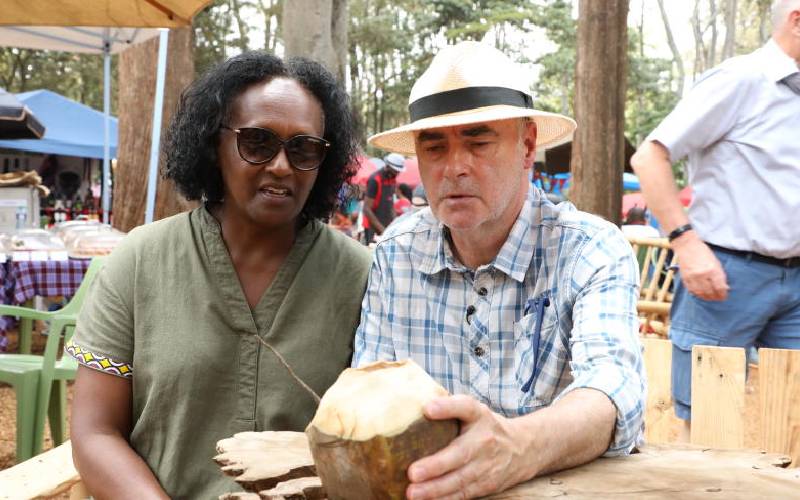×
The Standard e-Paper
Join Thousands Daily

Royal Airforce Honorary Air Commodore Veronica Moraa Pickering with her husband Roy Pickering at Organic Market in Karen, Nairobi. [Dennis Dikera]
Veronica Moraa Pickering, 60, rattles off the things she has been best at like someone rehearsing for a play. Growing up, she was the best-dressed, best at attending school and best athlete.